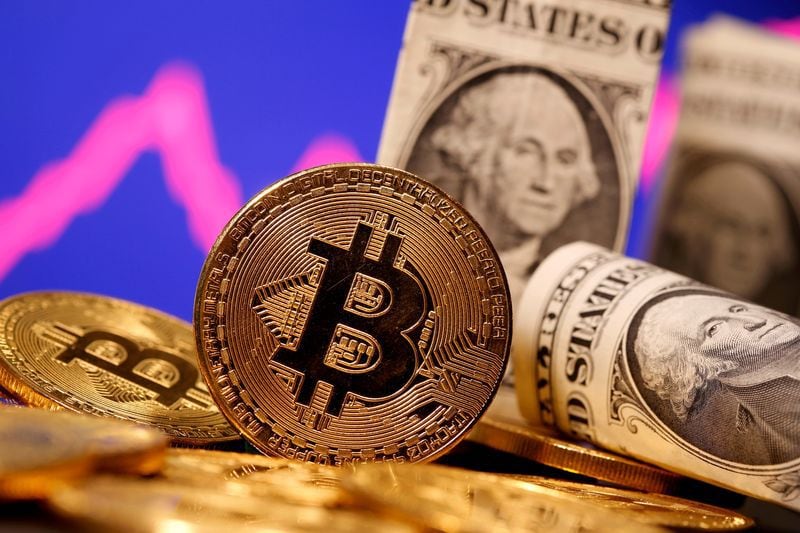
Undoubtedly, the war between Russia and Ukraine proposes new ways of dealing with armed conflicts without the use of “weapons”, at least bombs or bullets. The Western world's response has been to exclude the invading country from the Western asset-processing systems, the capitalists.
Quite a paradox, since capitalism has adopted typical diarista mechanisms, extremes, such as affecting the interests, no longer of a nation, but those of all its citizens, rich, sportsmen, artists, anyone who is of Russian origin and has not demonstrated itself reliably against Putin's actions is considered an enemy and this justifies seizing, confiscating or excluding.
These actions that produce “collateral damage” may even affect the same Ukrainian victims if they kept their savings in banks or shares of Russian companies, in fact, millions of people around the world carry out activities related to that part of the world.
The international financial system will try to take advantage of the legal discretion offered by war to advance “other enemies”, those who threaten the business models of the traditional economy.
Argentina and the IMF
Something that can be seen in other issues, less bloody than a war, but equally graphic. Interestingly, one of the points mentioned is the agreement that the Argentine Republic has negotiated with the International Monetary Fund, within the section “Strengthening Financial Resilience,” says: “To better safeguard financial stability, we are taking steps with the goal of 1) discouraging the use of cryptocurrencies with a view to preventing money laundering, informality and disintermediation; 2) providing more support to the current process of digitalization of payments to improve the efficiency and costs of payment and cash management systems; and (3) safeguard the protection of the financial consumer.”

In the wording of the paragraph you can identify conceptual errors or bad intentions, let's analyze each of the points:
(a) Prevent money laundering. The US dollar is the currency most used for laundering money. On a daily basis, we discover how financial institutions are involved in such maneuvers over the years, or even how drug traffickers and corrupt people carry bags, suitcases or containers full of greenbacks. The crypto world is electronic and therefore traceable. Any transaction between wallets links nominated account holders. To operate on any exchange or open an electronic wallet, you must comply with KYC (know your customer) processes that control over hundreds of identity and background databases. The best way to prevent money laundering is to end physical currency, mainly those with the greatest purchasing power on paper (dollars, euros, pounds), digitalization of payments is the first step to prevent this crime;
b) Prevent informality. As with money laundering, the marginal economy uses physical money to process its transactions. Any electronic payment made for informal transactions can be perfectly verified and thus reveal the tips of the movement;
(c) Prevent disintermediation. This point is really crazy. The current payment processing system has been constantly accumulating intermediaries. Banks, payment card issuers, processors, device renters, payment service providers, payment gateways, etc., add up transaction fees, making goods and services more expensive, inflating the world economy, skimming suppliers and consumers. Nothing better, than on the contrary, to remove intermediaries is to lower costs and return to the most efficient model;
d) Provide support to current systems. This point is a real syncericide, as the parties show the real intentions to discourage the use of cryptographic processing systems, which is simply to protect an old, expensive and exclusive system. A model that since its inception has only increased costs for users and delayed liquidations of cash balances;
(e) Protection of the financial consumer. Over the years, venture investors have suffered total losses by keeping traditional products in their accounts, without going any further, just a few years ago structured instruments on mortgage portfolios bankrupted some of the world's largest banks and investment managers. Previously, the bubbles of dot-com companies or some commodities swept away the savings and investments of millions of people, many of whom were literally left on the streets.

Everyone can invest, spend or give away their money as they like. If we lack at least this freedom, then let them tell us where to house our savings and that's it. Saying where not to invest is like saying where to do it. We all have the right to choose, at least this. On the other hand, if someone receiving funds commits a crime, there are legal mechanisms for them to deal with potential claims.
We are in a new world. One in which the anachronism between left and right is decadent and false. One in which the exponents of this dichotomy assume roles of one or another ideology by virtue of the convenience of the moment.
Today's leaders don't understand that this is not about ideology but about generations. The discussion will focus on analogue or digital.
KEEP READING:
Últimas Noticias
Debanhi Escobar: they secured the motel where she was found lifeless in a cistern
Members of the Specialized Prosecutor's Office in Nuevo León secured the Nueva Castilla Motel as part of the investigations into the case

The oldest person in the world died at the age of 119
Kane Tanaka lived in Japan. She was born six months earlier than George Orwell, the same year that the Wright brothers first flew, and Marie Curie became the first woman to win a Nobel Prize

Macabre find in CDMX: they left a body bagged and tied in a taxi
The body was left in the back seats of the car. It was covered with black bags and tied with industrial tape
The eagles of America will face Manchester City in a duel of legends. Here are the details
The top Mexican football champion will play a match with Pep Guardiola's squad in the Lone Star Cup

Why is it good to bring dogs out to know the world when they are puppies
A so-called protection against the spread of diseases threatens the integral development of dogs




